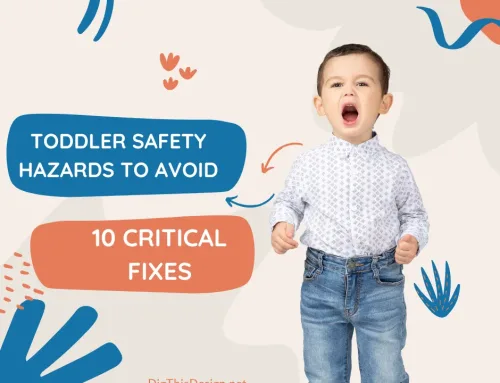Do you want to to brush up on your real estate negotiation skills? When it comes to selling real estate, everyone is trying to get the best deal possible. But if you are not an experienced negotiator, you risk being taken for a ride.
However, don’t worry, because we’re here to help! If you want to know more, continue reading to learn about ten pro tips to improve your real estate negotiation skills today.
10 Steps to Learning Real Estate Negotiation
1. Know What You Want
A successful real estate negotiation starts with one thing — knowing what you want. Are you looking for an apartment or a house? Do you want to be in an established neighborhood or an up and coming one? Do you want a rental or sale?
Narrow down what you or your client are looking for and make a list. It’ll help you find properties that match these needs faster. Interestingly, one option is to work out the value based on other similar properties in your area.
2. Do Your Research
Make sure you do your research in order to help you form an educated offer or counter offer. If you can also back that offer up with stats, it strengthens your position. You should look at buyer and seller data, neighborhood data, and market data. Find a good real estate agent like Manausa.com to gauge accurate prices in your area.
You can even drive the neighborhood and talk with the neighbors. Additionally, don’t be afraid to dive deep and arm yourself with as much knowledge as possible.
3. Determine the Seller’s Motivation
Working out why the seller is selling is critical to real estate negotiation. You should ask things like “is the property a home or an investment?” Investors are more business-minded, but homeowners have more sentimental motivations.
You should find out how long the property has been for sale. If it’s a recent listing, the seller may be unwilling to immediately lower the asking price. But, if it’s been for sale for a long time the owner may be more desperate for the sale.
4. Don’t Get Emotional
A good negotiator should never get emotional. If you’re negotiating yourself, or you’re representing clients — bring your poker face. It doesn’t matter if the property is sentimental or it’s the area where friends and family are together.
If you get emotional, offers that are above market value or beyond the budget are more likely. Instead, be rational when entering negotiations. In fact, doing so increases your chance of a good deal.
5. Forget Your Ego
Most often, we assume the other side is looking for something in the outcome. That might be more money, better terms, or something similar. But most of the time, they’re actually looking for an ego-stroking.
There will be some people who are going to get the best deal possible, that’s a fact. But there will also be those who will be more than willing to discount the price in return for a decent ego-stroking.
The simple truth is, flattery gets you everywhere in some situations. Of course, that includes getting a better deal in a negotiation. Moreover, it encourages the other party to lower their guard, making them feel as if they have to return the favor.
6. Be Creative
Price isn’t the only thing that matters. If the other side isn’t budging, then try negotiating other elements. It’s time to be creative.
For instance, if you offer the higher price, negotiate to keep some of the staging furniture. Or, if you’re an agent, think about reducing the commission a little. Through creativity, there are no limits to how you make a deal work for everyone
7. Negotiate Counteroffers
Sellers rarely accept the first offer. During real estate negotiations, you should expect to receive a counteroffer. When the seller makes this counteroffer, step away and think about it.
When countering, make sure you mention any details like repairs or renovations. The main goal of these negotiations is to create a win-win for both buyer and seller. However, don’t ever let them think you’re hungry, as it gives the other party the upper hand.
8. Always Get the Last Concession
Concessions are what the other party gives in negotiations. This type of action is like a price drop. By getting the final concession, the other party will likely stop asking once they get what they want or need.
If they realize every time they want something they have to give something up, they’ll shy away from asking for more than they need. Otherwise, they stand the chance of up giving up something important for something non-essential.
9. Use Price Anchoring to Find the Lowest Price
The ‘low anchor’ is a successful negotiation strategy. It’s where you give an initial low ball offer to change the seller’s idea of the deal’s financials. This usually gets them to go right to the bottom line or, close to it.
Try taking a third off the asking price for your first offer because this is much lower than anything the seller will accept. However, it forces them to haggle upwards. You might find it interesting that their counteroffer often reveals how overpriced they actually think their asking price is.
10. Try to Meet With Sellers in Person
Don’t wait for the open house. Instead, arrange to meet the sellers in person before. Doing so makes a good impression and might even be critical to a successful negotiation.
Sellers choose the highest offer if there aren’t any other factors to consider. However, another factor to consider is that a seller’s first choice is usually someone they like. So, meeting them and finding common ground will set you apart from other offers. Then, when they’re going through a pile of offers, you’ll stand out.
Pro Real Estate Negotiation
Real estate negotiation is an art, but one you need to perfect if you want to get the most out of your transaction. Real estate is the most expensive asset most of us will ever own, so even a few percentage points could have a huge impact on your bottom line.
If you found this article useful, be sure to check out our other blog posts. So, continue scrolling to find several links to other fantastic articles about all things design!
Images Courtesy of Canva.
Types of Fences To Keep Skunks and Other Wildlife Off Your Yard
How Power Washing Your Home Increases Its Value





